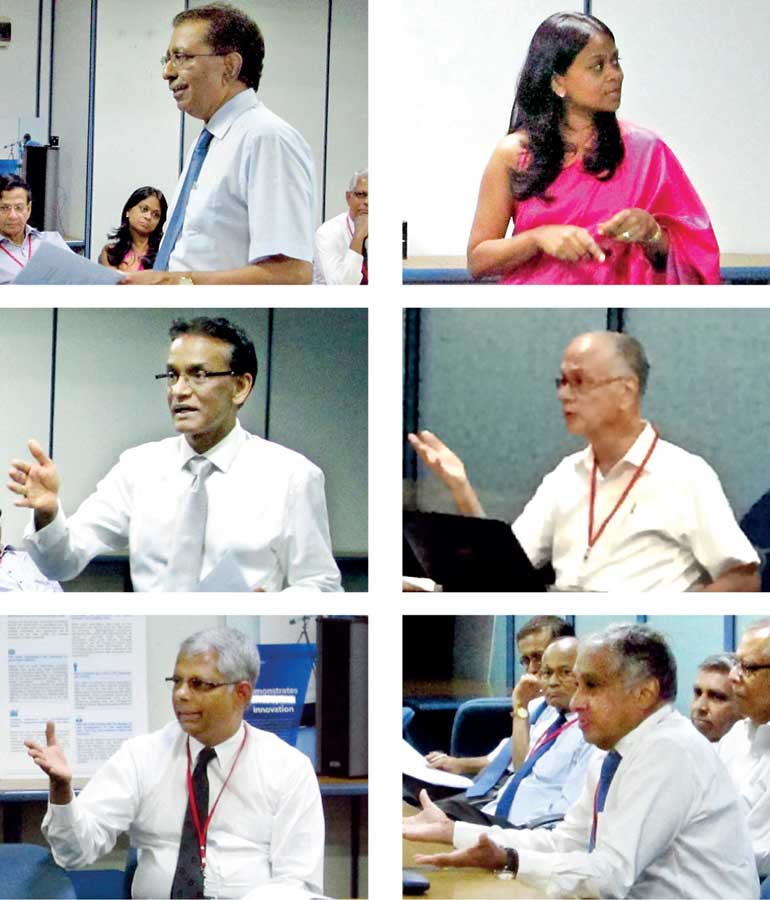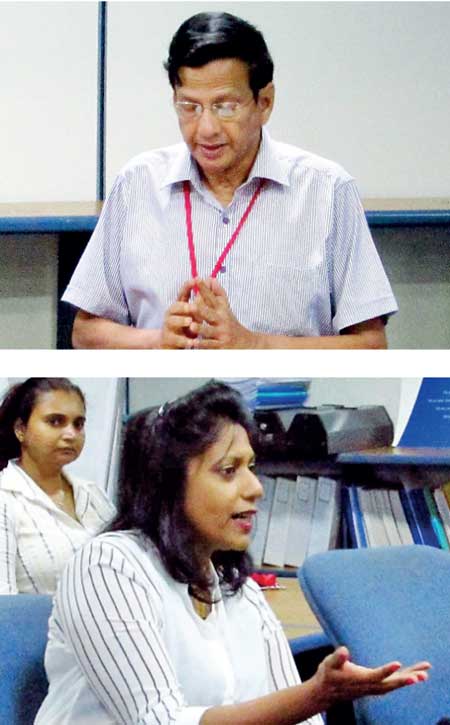Wednesday Feb 25, 2026
Wednesday Feb 25, 2026
Wednesday, 1 March 2017 00:00 - - {{hitsCtrl.values.hits}}
 In today’s complex and evolving business environment, an effective Audit Committee (AC) can be a key feature of a strong corporate governance culture. As expectations of stakeholders have never been higher, and the scrutiny by regulators and investors never more stringent, the role of the AC has rapidly increased in importance and expanded in scope. To highlight the principles underlying the AC’s role and the processes and practices that help create an effective AC, KPMG hosted the 11th roundtable session of the AC Forum recently.
In today’s complex and evolving business environment, an effective Audit Committee (AC) can be a key feature of a strong corporate governance culture. As expectations of stakeholders have never been higher, and the scrutiny by regulators and investors never more stringent, the role of the AC has rapidly increased in importance and expanded in scope. To highlight the principles underlying the AC’s role and the processes and practices that help create an effective AC, KPMG hosted the 11th roundtable session of the AC Forum recently.
Setting the platform for discussion, the session featured key presentations from Maithri Wickremesinghe, AC Chairman – Hemas Holdings PLC, on ‘Why Effectiveness is Important,’ Hiranthi Fonseka, Partner – Ernst & Young, on ‘How Effectiveness is Achieved’ and Rasakantha Rasiah, AC Chairman – Ceylon Cold Stores PLC, on ‘Effectiveness in Practice,’ followed by an interactive Q&A session moderated by Suren Rajakarier, Head of Audit, KPMG in Sri Lanka.
Wickremesinghe highlighted that ACs are generally regarded as an indicator of good governance. However, in the recent past, well publicised corporate governance failures have demonstrated that having an AC does not, or itself, guarantee good governance. He further shared the following points on the importance of AC effectiveness:
Fonseka pointed that effective ACs are supported by fundamental building blocks: an appropriate structure and foundation; reasonable and well defined responsibilities; an understanding of current and emerging issues; and a proactive, risk-based approach to its work.
She shared a number of considerations for building effective ACsincluding:
Emerging trends included-
Wider disclosures (going beyond GAAP) in financial statements and related reports.
Short meetings of AC members only, perhaps prior to formal AC meetings, at which any concerns could be discussed and clarified.
Rasiah, presenting on ‘AC Effectiveness in Practice,’ highlighted, how an AC fulfils its responsibilities varies according to the abilities and behaviours of its members, the clarity of the AC’s mission, and the tone set at the top of the governance structure. He shared the following practices that mark a strong and effective AC.
Rajakarier facilitated the discussions around criteria used to evaluate effectiveness of ACs and warned that the evaluations were discoverable in litigation and so could provide evidence of the AC’s operations and effectiveness in a court of law.
Time pressures and difficulty of the AC was noted in KPMG’s Global Audit Committee survey, where out of 1500 AC members responding to survey,three out of four said the time required to carry out their responsibilities has increased significantly (24%) or moderately (51%). Half said the job continues to grow difficult given the committee’s time and expertise.
Responding to a question on ‘how, in practice, could an Internal Auditor be expected to be independent and forthright when he was part of the organisation?’ Rajakarier stated that, this should come from the culture established by the Board, and by ensuring independence of the Internal Auditor by setting his reporting line directly to the AC Chairman, who would have significant input into his remuneration and career advancement.
Rajakarier also focussed on risk assessment and risk management aspects of AC responsibilities. In discussing whether AC members had enough opportunity and information to review and discuss the process by which risks were managed: It appeared that, while some participants in well-structured environments had no concern on this score, many felt this was lacking in their environments.
The general consensus was that AC members may appreciate additional information or education about risks. For example strategic risks, operational risks, financial risks, compliance risks, etc. impacting the company. The forum decided to focus its next roundtable discussion on this topic.

